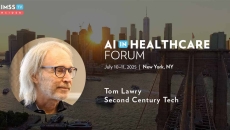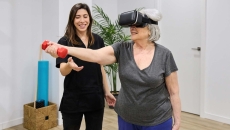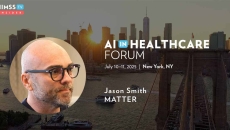Data and Information
Researchers at Johns Hopkins found that the AI outperformed current clinical guidelines with 89% accuracy across all patients and a 93% accuracy rate for individuals ages 40 to 60.
While most provider and payer organizations are using some form of AI, very few are getting demonstrable value at scale across the enterprise, says Tom Lawry, managing director of Second Century Tech.
Also, a project developing an AI-powered application for preventing cognitive decline among seniors has won a $2 million grant from the New Zealand government.
Also, OMRON in Singapore has launched a new medical device plan featuring AI-driven recommendations for self-management of chronic diseases.
Users of XRHealth's immersive therapeutic platform will be able to receive real-time movement analysis feedback during rehabilitation.
Healthcare organizations are vulnerable to cyberattacks like phishing scams during IT upgrades and business restructuring. Security awareness is important during any changes, says Ven Auvaa, ArmorPoint's information security director.
Pregnant and postpartum patients will have access to an app and educational programs to help them develop skills to manage the challenges of pregnancy and parenthood.
When it comes to making strategic AI investment deals, companies need to articulate their competitive advantage and how they view the market around them, says Jason Smith, venture acceleration fellow at MATTER.
While commercial software is very good at providing clinical decision support applications, it is essential to identify a targeted goal within the software, says Dr. Ryan Sadeghian, CMIO at the University of Toledo.
Duane Perry, chief nursing officer at OhioHealth, says he envisions a future state where experienced nurses can remain part of the nursing care model and be actively involved in not only precepting but also caring for patients virtually.









